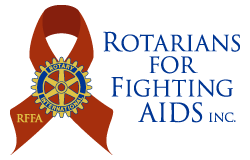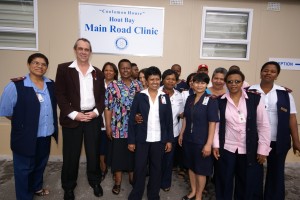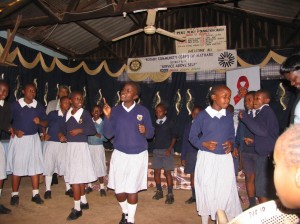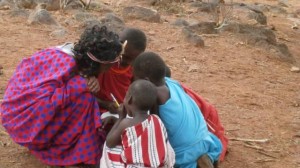
Why Should You Become a Member of RFFA?
by Bill Mackay, RFFA Board Member
Membership in Rotary is defined as a diverse group of professional leaders working to address various community and international service needs. Through community service and other means, Rotary club members help promote peace and understanding throughout the world. Members are the most important asset. They are the force that allows Rotary to carry out its many humanitarian efforts and achieve its mission.
As a Rotary Action Group (RAG), Rotarians For Fighting AIDS (RFFA) provides an opportunity to mobilize Rotarians and provide global leadership in the fight against HIV/AIDS that will assist Rotarians around the world in bringing meaning to membership. …..
For $20 per year or $l00 for a lifetime membership you can join our Action Group approved by Rotary International’ Board of Directors in October of 2003. The mission of RFFA includes:
• focus Rotarians on assisting community support efforts for orphans and vulnerable children
• create a structure which encourages Rotarians around the globe to work on HIV/AIDS education and prevention
• Promote all club and district AIDS programs and help align those in
need with those who have resources
• align the global Rotary community with best practices community childcare programs such as HOPE worldwide in Africa
• break the silence and reduce the stigma surrounding AIDS
RFFA is completely dependent on memberships for its funding. As a volunteer organization seeking to make a significant difference in the fight against HIV/AIDS, we need to be able to connect with all Rotarians that share the same vision.
Many Rotarians may be involved in district based initiatives such as RADAR , an initiative adopted by several districts in Zone 22; or the Los Altos Rotary AIDS Project in D5170, or the multiple projects driven by Rotary Clubs in Africa and India. These are all club driven initiatives in response to the HIV/AIDS pandemic.
Whatever solution you may have adopted, a RFFA membership deserves consideration because it will take a collaborative effort in order to be heard as one powerful voice. As Stephen Lewis, the UN special envoy for HIV/AIDS stated at the World AIDS Day, “If only we could galvanize the world, we’d subdue this pandemic. We’re terrific when it comes to studies and documentation. Reports like the Epidemic Update issued by UNAIDS last week are models of statistical compilation, containing pockets of fascinating material. But the report itself acknowledges that real progress against the pandemic is hard to find. We need a superhuman effort from every corner of the international community.”
Please consider your membership in RFFA.
 “The increased spiral of adult deaths in so many countries means that the number of children orphaned each day is expanding exponentially. Africa is staggering under the load.“ – Stephen Lewis, UN Special Envoy for AIDS in Africa
“The increased spiral of adult deaths in so many countries means that the number of children orphaned each day is expanding exponentially. Africa is staggering under the load.“ – Stephen Lewis, UN Special Envoy for AIDS in Africa





